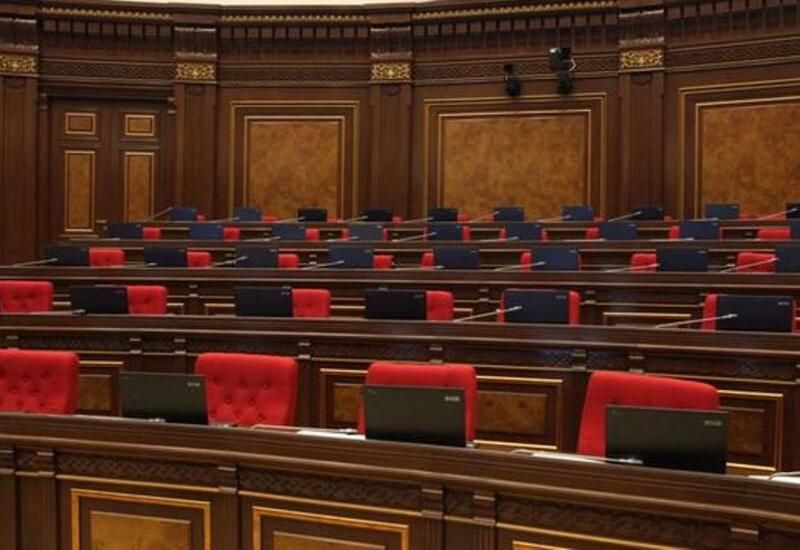Pundit: Armenia ratified Alma-Ata Declaration and there is no turning back

By Leila Tariverdieva
The Alma-Ata Declaration of December 1991 is enshrined as the basis for the border delimitation process that is finally starting between Azerbaijan and Armenia. According to the agreement reached on April 19 at a meeting of the relevant commissions of the two countries, in the delimitation process the parties will be based on this document, and this basic principle will be recorded in the draft Regulations.
Let us note that Azerbaijan has been talking about the administrative borders of the former union republics as the basis of interstate borders for several years. The Armenian side, hoping to get something more, proposed to rely on various dubious maps. However, now Armenia is declaring its “diplomatic victory,” claiming that Yerevan managed to achieve recognition of Soviet borders by Azerbaijan. And the opposition, which Nikol Pashinyan again outplayed, spoke even more persistently about certain reservations with which Armenia ratified the declaration and which should be applied.
Political scientist, professor at Hanguk University of Regional Studies (Seoul) Rovshan Ibragimov commented on the situation and noted that Armenians can say whatever they want. They need cheap victories.
"We don’t need cheap victories. We won our main victory, and everything else is just a process. Azerbaijan has never abandoned the Alma-Ata Declaration, this document has always been the basis, starting in 1991. It was not taken seriously by the Armenian establishment, which remembered the declaration only after the 2020 war. I must note that Azerbaijan is not an irredentist country. We are not trying to annex the territories of our neighbors. “is to return our lands. And we are returning them,” he said.
The Alma-Ata Declaration, which is talked about so much today, was signed a few days after the meeting in Belovezhskaya Pushcha, where the heads of Russia, Belarus and Ukraine entered into an agreement according to which the USSR ceased to exist, the political scientist noted. And the meeting in Alma-Ata (now Almaty - ed.) was a civil divorce, since it was necessary to discuss all issues with other republics that were part of the Union.
The “divorce”, with the consent of the parties, took place according to the principle of uti possidetis juris. This is a principle of international law, which means that new states that have gained independence have the same territory and with the same borders that they had before, being colonies or dependent territories, including administrative units within other states. According to this principle, the administrative border of a territorial entity becomes the international border of a new independent state. Initially, this principle was applied to former colonies. For example, you can see the borders of the former colonies and now independent states of Africa - they are mostly straight. The same principle was applied during the collapse of the USSR and Yugoslavia. The administrative boundaries between the republics have become international,” said the Seoul University professor.
As our interlocutor noted, the Armenian opposition, which today opposes the Alma-Ata Declaration, speaks of the reservations with which Armenia ratified this document. Revanchists claim that there were ten reservations, and one of them is the condition that in addition to the union republics, autonomous entities that held a referendum and allegedly became independent in full compliance with the laws of the USSR can join the CIS. This meant, of course, Garabagh. But here’s the problem - what is done inside the Armenian parliament is Armenia’s personal business. The Armenian parliament has the right to make any decisions it wants. But this will not have legal force at the international level, the political scientist emphasized.
“The Armenian opposition, of course, after the agreements reached on April 19, will begin to put even more pressure on Pashinyan. However, these loudmouths should know that reservations and amendments to international documents must take place directly upon its signing. Because other parties should be aware of that , to which they adhere. Otherwise, reservations are not taken into account.
For example, in 1998, an international document on the creation of a new Silk Road within the framework of TRACECA was signed in Baku. Azerbaijan signed it with the proviso that while Garabagh and other Azerbaijani territories are occupied, cargo coming from or to Armenia, or crossing Armenian territory, cannot pass through Azerbaijani territory. Azerbaijan actually blocked Armenia's participation in TRACECA. Azerbaijan's reservation was accepted by all participants who signed the document, including Armenia. And this is reflected in the document. But in the Alma-Ata Declaration there is nothing about Armenia’s reservations. The countries that signed it were not aware of them, and such amendments are not made to international documents retroactively. All Armenia could do was not ratify the document. Ratification is the translation of international agreements into domestic law. And this is exactly what happened with the Alma-Ata Declaration in Armenia,” said Rovshan Ibragimov.
---
Follow us on Twitter @AzerNewsAz
Here we are to serve you with news right now. It does not cost much, but worth your attention.
Choose to support open, independent, quality journalism and subscribe on a monthly basis.
By subscribing to our online newspaper, you can have full digital access to all news, analysis, and much more.
You can also follow AzerNEWS on Twitter @AzerNewsAz or Facebook @AzerNewsNewspaper
Thank you!
